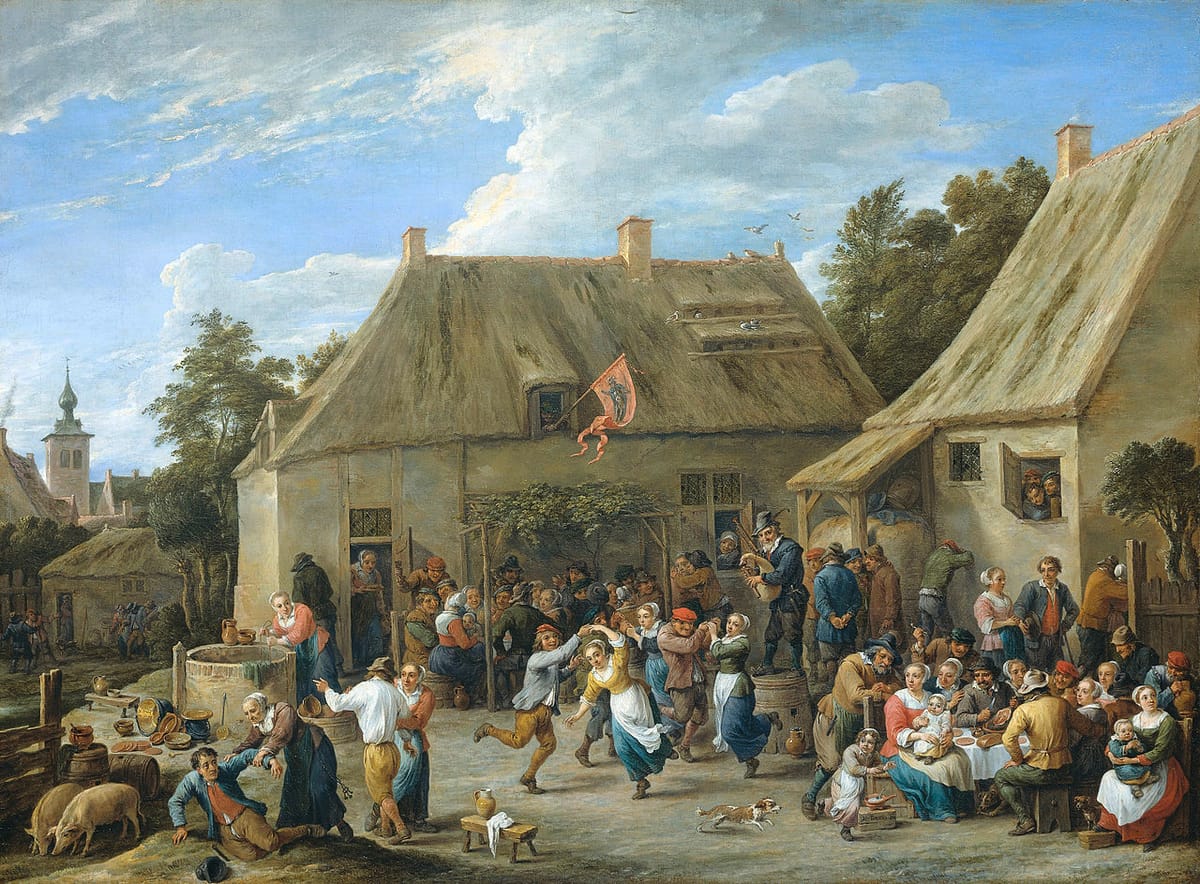Beyond Tolerance: From Indifference to Encounter
Tolerance may keep conflict at bay, but by itself it leaves us strangers. Free societies endure only when they move beyond the tranquility of indifference to the practice of encounter—where wary coexistence gives way to fraternity, solidarity, and a shared civic life.

Contemporary liberal democracies are marked by a paradox. Never before have societies contained such breadth of faiths, cultures, and worldviews, yet rarely have they seemed so fractured, mistrustful, and prone to polarization. The civic virtue of tolerance, long praised as the essential foundation of pluralism, reveals its limits in this landscape. It restrains coercion and curbs violence, but it does not build solidarity. It protects individuals from persecution, but it does not draw them into a common life. It is, in short, a peace of suspension, not of encounter.
At its root, tolerance is a posture of non-interference, the willingness to endure what one disapproves. Locke in his Letter Concerning Toleration imagined it as a necessary restraint on state power, a safeguard for liberty of conscience, but not as a path toward deeper fraternity. The philosopher Rainer Forst has called tolerance a permission of the "objectionable,” while Goethe added more caustically: “Tolerance should be a temporary attitude only: it must lead to recognition. To tolerate means to insult.” What these judgments reveal is the thinness of tolerance. It suspends violence, but it perpetuates distance. Political theorists have described this hollow condition with the phrase tranquillitas indifferentiae—the tranquility of indifference. The term is not a classical category but a modern coinage meant to contrast with Augustine’s famous tranquillitas ordinis, the “tranquility of order.” Where Augustine conceived peace as the well-tuned harmony of society when each part fulfills its proper role—“the calm that comes of order” (City of God, XIX.13)—the tranquility of indifference suggests something more anemic: quiet secured not by justice or harmony, but by disengagement. It is the hush of parallel solitudes, the civic truce of neighbors who agree never to speak.
[...] the tranquility of indifference suggests something more anemic: quiet secured not by justice or harmony, but by disengagement. It is the hush of parallel solitudes, the civic truce of neighbors who agree never to speak.
This contrast illuminates the problem of tolerance in its minimalist sense. Tranquillitas ordinis presupposes relationship, proportion, a shared orientation to a good beyond the self. Tranquillitas indifferentiae is its parody: peace achieved by retreat, the absence of conflict bought at the cost of communion. Our present liberal settlements too often resemble the latter. They keep violence at bay but cannot cultivate trust; they secure freedom from coercion but offer no reason to exercise freedom for the sake of others.
What, then, would it mean to recover something closer to Augustine’s deeper vision—not in its hierarchical medieval form, but in a democratic register? The answer lies in moving beyond tolerance as non-interference to what might be called fraternal pluralism.
What, then, would it mean to recover something closer to Augustine’s deeper vision—not in its hierarchical medieval form, but in a democratic register? The answer lies in moving beyond tolerance as non-interference to what might be called fraternal pluralism. This does not reject tolerance or pluralism, which remain indispensable foundations, but insists they must be surpassed by a more demanding ethic: not merely enduring difference, nor celebrating it abstractly, but meeting it as gift. Pope Francis in Fratelli Tutti (2020) calls for precisely this shift, urging a passion for meeting others, seeking points of contact, building bridges. He contrasts the sterile isolation of radical individualism—“a virus,” he writes, “that is extremely difficult to eliminate”—with the fecundity of encounter, where each culture and community brings its own indispensable contribution. His metaphor of the polyhedron is telling: unlike the sphere, which smooths all surfaces into sameness, or the heap of fragments, which never coheres, the polyhedron is a unity composed of many distinct and irreplaceable faces.
This vision is not an innovation of Francis but the fruit of a genealogy that runs through modern Catholic thought. The Second Vatican Council’s Dignitatis Humanae (1965) grounded religious liberty in the dignity of conscience, insisting that “truth cannot impose itself except by virtue of its own truth.” Dialogue, the Council declared, was not a tactic of social peace but an intrinsic element of moral duty: men and women must “assist one another in the quest for truth” through communication and exchange. John Paul II’s personalism made this anthropology vivid. His encyclical Centesimus Annus (1991) warned against both collectivism and radical autonomy, urging societies to root freedom in solidarity. His pilgrimage to Warsaw in 1979 dramatized what this meant: millions of Poles, long atomized under communism, encountered themselves again as a people, and in that collective recognition, Solidarność was born. Benedict XVI in Caritas in Veritate (2009) completed the trajectory, reminding the world that charity without truth collapses into sentimentality, while truth without charity ossifies into rigidity. This dialectic set the stage for Francis’s insistence that fraternity is the only viable antidote to a fragmented globalization.
[John Paul II’s] pilgrimage to Warsaw in 1979 dramatized what this meant: millions of Poles, long atomized under communism, encountered themselves again as a people, and in that collective recognition, Solidarność was born.
This appeal to fraternity is not confined to Catholic thought. Canadian philosopher Charles Taylor has argued that liberal democracy cannot survive on liberty and equality alone. Without the third, forgotten pillar—fraternity—citizens lose the sense that institutions are theirs and that they belong to a common project. In The Politics of Recognition (1992), he describes genuine belonging as “the unity of a common project, even a ‘common self,’” while in Degenerations of Democracy (2022) he warns that regimes decay when people lose “the felt sense of acting together.” In Modern Social Imaginaries (2004), Taylor insists that every democracy depends not only on rules and rights but on the deeper cultural frameworks through which people “imagine their social existence, how they fit together with others.” His point is stark: liberty and equality become abstractions unless grounded in fraternity.
Isaiah Berlin provides the philosophical depth to this claim. In Two Concepts of Liberty (1958), he cautioned that “pluralism, with the measure of ‘negative’ liberty that it entails, is a truer and more humane ideal” than any monist system, because “human goals are many, not all of them commensurable, and in perpetual rivalry with one another”. In The Crooked Timber of Humanity (1990), he put it even more sharply: “The possibility of conflict—and of tragedy—can never wholly be eliminated from human life. Choices must be made, sometimes between incompatible goods.” Such passages explain why tolerance or neutral procedure alone cannot suffice: if genuine goods collide, politics must sustain dialogue rather than deny it. Fraternity, in this sense, is not a sentimental add-on but the necessary condition for keeping liberty and equality alive amid irreducible conflict.
[...] tolerance or neutral procedure alone cannot suffice: if genuine goods collide, politics must sustain dialogue rather than deny it. Fraternity, in this sense, is not a sentimental add-on but the necessary condition for keeping liberty and equality alive amid irreducible conflict.
This ethic is not abstract. It is practiced wherever institutions and communities deliberately create spaces of encounter: intergroup dialogue programs in universities, interfaith reading circles such as Scriptural Reasoning, civic experiments like the Tri-Faith Commons in Omaha, the Schools of Peace of the Community of Sant’Egidio, or reconciliation initiatives in post-conflict societies. These examples, diverse in setting, all point to the same truth: fraternity might not emerge spontaneously from diversity. It must be cultivated through structures, rituals, and disciplines that turn proximity into relationship.
Yet every attempt to cultivate fraternity is shadowed by danger. One is the false promise of civility. As Susan Bickford has shown in The Dissonance of Democracy (1996), appeals to civility often mask power. They privilege the communicative styles of dominant groups and label dissenting voices—especially those that are angry, disruptive, or rooted in marginalized experience—as illegitimate. Civility, in this sense, becomes less a democratic virtue than a mechanism of exclusion. When that happens, tranquillitas indifferentiae returns in a darker form: not the benign quiet of disengagement, but the enforced quiet of silenced protest. Peace without conflict may look attractive, but when purchased at the cost of justice it is counterfeit, a brittle stability always on the verge of rupture.
Peace without conflict may look attractive, but when purchased at the cost of justice it is counterfeit, a brittle stability always on the verge of rupture.
Another peril is relativism. In the eagerness to preserve harmony, societies may adopt the illusion that all claims are equally valid, and that conviction itself is dangerous. But this dissolves the very ground for dialogue, for if nothing is worth holding, nothing is worth sharing. As Diana Eck has insisted, pluralism is “the encounter of commitments,” not their evaporation. In her A New Religious America (2001) and in the work of Harvard’s Pluralism Project, Eck distinguishes pluralism from both diversity and relativism. Diversity, she notes, is a demographic fact—people of different traditions living side by side. Pluralism, by contrast, is an active engagement of that diversity, a process of building relationships, institutions, and habits of dialogue. It requires that participants bring their deepest convictions into the conversation, rather than setting them aside. Pluralism, for her is not a call to leave our identities and commitments behind, but a call to enter into the encounter with them intact. It is precisely this presence of strong commitments that gives encounter its transformative power: one learns not by suspending belief, but by seeing one’s own convictions refracted through the eyes of another.
Pluralism, for her is not a call to leave our identities and commitments behind, but a call to enter into the encounter with them intact.
This is why relativism, the flattening of all claims into equal indifference, is so corrosive. Relativism avoids conflict by dissolving commitment; pluralism sustains conflict by dignifying commitment. Fraternal pluralism, in Eck’s sense, is not about erasing lines but about learning to live across them, seeing in the other’s fidelity not a threat but a resource. True fraternity thus depends on the courage to affirm difference, to risk disagreement without abandoning relationship.
True fraternity thus depends on the courage to affirm difference, to risk disagreement without abandoning relationship.
A final danger is incommensurability itself. Isaiah Berlin reminded us that human goods are irreducibly many and often tragically at odds. Choices between liberty and equality, or between justice and mercy, cannot be solved by a formula or a civic settlement. The work of politics is not to eliminate conflict but to sustain it without violence. Fraternal pluralism must therefore be honest about its limits: it cannot guarantee consensus, but it can insist that relationships endure even when agreement proves impossible.
What emerges, then, is a picture of two competing ideals of civic peace. Tranquillitas indifferentiae offers the calm of disengagement, the minimal tolerance that keeps neighbors from violence but never makes them friends. Tranquillitas ordinis—understood today not as hierarchical subordination but as rightly ordered relationship—points to a deeper harmony, where freedom is oriented to love, solidarity, and the common good. Between these lies the task of our time: to build societies that refuse the counterfeit quiet of indifference and dare instead the more arduous labor of encounter.
Between these lies the task of our time: to build societies that refuse the counterfeit quiet of indifference and dare instead the more arduous labor of encounter.
Fraternal pluralism names that labor. It is nothing less than the civic art of transforming tolerance into friendship, difference into gift, and fragile truces into durable bonds. A society that learns to practice it will be not only freer but more human.
Fraternal pluralism names that labor. It is nothing less than the civic art of transforming tolerance into friendship, difference into gift, and fragile truces into durable bonds. A society that learns to practice it will be not only freer but more human.






